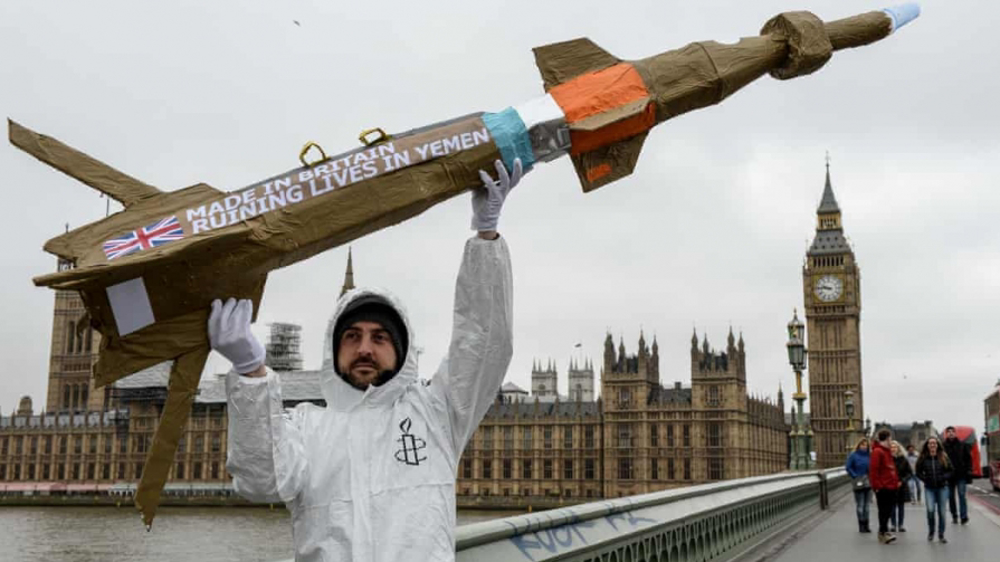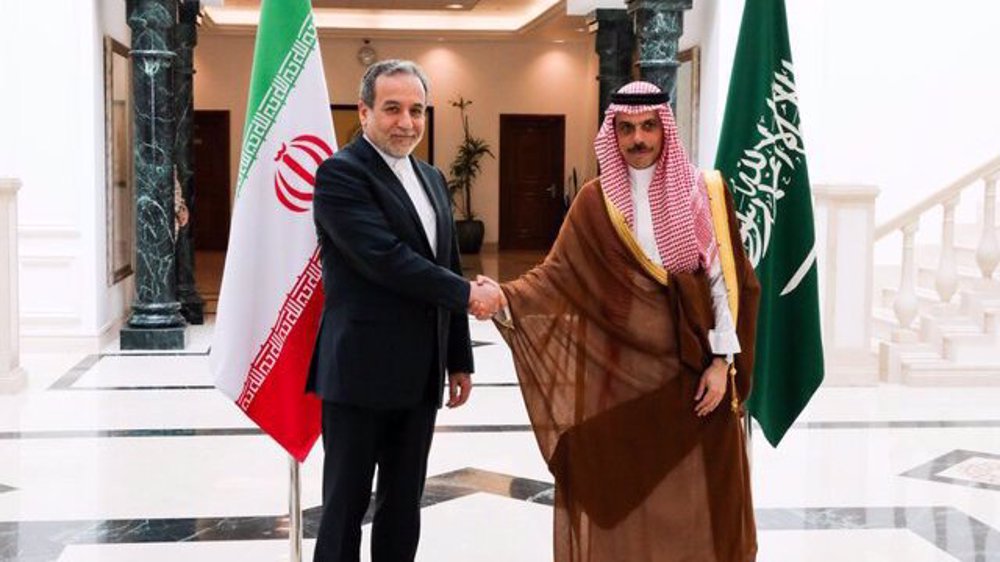UK using ‘delaying tactics’ in releasing files on Saudi arms sales: Report
The UK Department of International Trade (DIT) has been accused of using “delaying tactics” in releasing documents about the country’s arms sales to Saudi Arabia on the pretext that it needs more time to see if releasing the information is in the public’s interest.
Campaigners and activists argue that members of the public have the right to know about government decisions on selling lethal arms which are being used against civilians in Saudi Arabia’s neighboring country, Yemen.
The department’s Information Rights Unit has confirmed that it holds the due material but has rejected releasing them for the second time in a row, saying that it needs another 30 days to make a decision.
The development came in the wake of an inquiry by the Middle East Eye, which filed a freedom of information request in July, seeking information about arms exports to Saudi Arabia between 1 and 15 October 2016, when the Saudi-led coalition’s conduct of the war was under scrutiny over a deadly airstrike in Yemen’s Sana’a that killed more than 140 people.
Sam Perlo-Freeman, a research coordinator with the UK-based Campaign Against Arms Trade, which works towards the abolition of the international arms trade and has challenged UK arms sales to Saudi Arabia in the high court, said the department appears to be using “classic delaying tactics.”
“The UK continued to approve arms export licenses to Saudi Arabia in the wake of some of the most horrific Saudi coalition attacks on Yemeni civilians,” Perlo-Freeman said.
“It is important for the public to know – what concerns, if any, were raised by civil servants about these licenses? How did ministers, including [then-Foreign Secretary] Boris Johnson, respond to these concerns? Did these atrocities make any difference to their thinking?” he added.
The DIT’s rejection for being responsive came after the UK-based Open Democracy media platform revealed that DIT was “the second most prolific” government department to use the “public interest loophole” in 2021.
Anna Stavrianakis, a professor in international relations at the University of Sussex, who was the requester of information from FOI and others, has said that obtaining the data is important in order to hold the UK accountable for its potential complicity in war crimes in Yemen.
Former Foreign Secretary Liz Truss faced a grilling by parliamentarians at a foreign affairs committee hearing in June, when she dodged a volley of questions from parliamentarians on the UK government’s ambiguous stance on Saudi Arabia, saying that the Arab kingdom is an “important partner of the United Kingdom.”
Asked about the Saudis’ human rights record by Labour MP Chris Bryant, Truss stressed that “it is important to build a close trading relationship with the [Persian] Gulf states.”
“Eighty-one executions in one day in Saudi Arabia and you don’t think that’s an authoritarian regime?” Bryant pressed at the time, referring to the execution of 81 people in Saudi Arabia on a single day in March.
“If a country is an authoritarian regime, it’s fine to do business with it as long as the authoritarianism is only within its own borders, is that right?” Bryant continued, to which Truss dodged again and brought up unrelated issues about Russia and China.
According to the international charity organization Oxfam, the UK government licensed the export of air-to-air refueling equipment to Saudi Arabia last summer, when arms restrictions were lifted and London approved an additional £1.4 billion sale of other weapons.
“As the US has called for an end to the conflict in Yemen, the UK is heading in the opposite direction, ramping up its support for the brutal Saudi-led war by increasing arms sales and refueling equipment that facilitate airstrikes,” Sam Nadel, head of policy and advocacy at Oxfam, said last year.
The UK has resisted pressure to follow suit as the humanitarian situation worsens in Yemen, ignoring all the calls from the international community against exporting lethal arms to the Arab Kingdom, which is the first importer of UK arms.
VIDEO | Press TV's news headlines
Senior Russian general shot and wounded in Moscow: Officials
UK ordered in 'milestone' court ruling to pay $570 million for colonial-era massacre
VIDEO | Defying the rubble, Gaza opens its first face-to-face school since start of war
‘Ready for next round’: Million-man rally in Yemen backs Gaza, resistance
FM Araghchi departs Muscat for Doha following nuclear talks with US
Israeli keeps killing more Palestinian civilians in Gaza amid relentless ceasefire violations
Aliyev: Azerbaijani territory will not be used for threats against Iran













 This makes it easy to access the Press TV website
This makes it easy to access the Press TV website